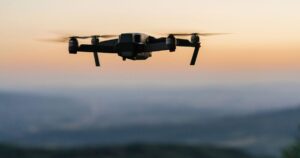Setting the Scene for Drone Insurance

Drones have been here for a few years and are now being used for commercial purposes such as film and advertising productions, mapping and surveying, agriculture, mining, security, and conservation operations, or purely for leisure.
These increasingly popular Unmanned Aerial Vehicles (UAVs) or Remotely Piloted Aircraft Systems (RPAS) commonly called drones, can cost from tens to hundreds of thousands of rands. If you’re the owner – or aspiring owner – of a shiny new drone, how do you make sure it is adequately protected?
Insurance options …
- As a recreational drone owner, you should be able to insure your drone under your regular home contents or portable possessions cover. You may have to specify it and provide your broker with the serial number as proof of ownership for cover away from home. However, protection is excluded while your drone is in use – in other words damage to the drone whilst in flight, as well as liability for injury or damages to third parties.
- As a trained, licensed, and registered owner, you will be eligible for specialised cover available for commercial operators. This will include cover while in use, liability insurance and cover for the drone and its attachments. Consult your broker to get more detail on the specialist cover available.
Why get a Remote Pilots Licence “RPL”?
Statistics show that recreational drone use leads to a significantly higher percentage of damage claims than commercial operations.
As a licensed drone pilot, you will acquire the knowledge, training, and skills to operate a drone safely and therefore fall into a different risk profile than an unlicensed pilot, making you eligible for comprehensive specialised drone cover.
If you are convicted of illegal drone operations, you may be fined or imprisoned for up to 10 years or both.
Bear in mind …
- The Protection of Personal Information Act (POPIA), the South African Constitution and other legislation protect data and people’s privacy – inform yourself and follow the law. For instance, using a drone to film events such as school galas, where children can be identified, may be illegal.
- You may not launch or land your drone on a beach packed with people, as the South African Civil Aviation Authority (SACAA) regulations prohibit flying your drone within 50m from a person or building without permission, or more than 400 feet from ground level.
- You may not fly your drone while on holiday in the Kruger National Park, as no-drone zones include national and private game parks, areas near airports, national key points, courts and other strategic buildings or industrial plants.
- Gated estates increasingly have guidelines for drone use – you may need permission from your body corporate to operate one in your estate even though it is in your own backyard.
- Be aware of civil aviation rules, safety regulations and municipal bylaws.
- Local noise bylaws in neighbourhoods may mean you are not allowed to fly your drone at certain times.
- It is a legal requirement that you comply with safety regulations to ensure the drone and its propellers don’t harm people, buildings, or animals.
- Remember that when performing flights outside of South Africa, you must have confirmation from the local civil aviation authority stating that you are allowed to fly within their airspace.
Tailored insurance for a registered drone operated by a qualified pilot may include cover for:
- Loss or damage to your drone including any removable and/or interchangeable equipment (also known as the payload).
- Third party liability attached to the specific drone noted as covered in the policy schedule. This is on condition that there is compliance to the terms and conditions of the cover.
- Theft, transit, and cybercrime (hacking of the drone and loss of data).
- Invasion of privacy.
- Noise liability.
Source: Hollard Ins Co Ltd